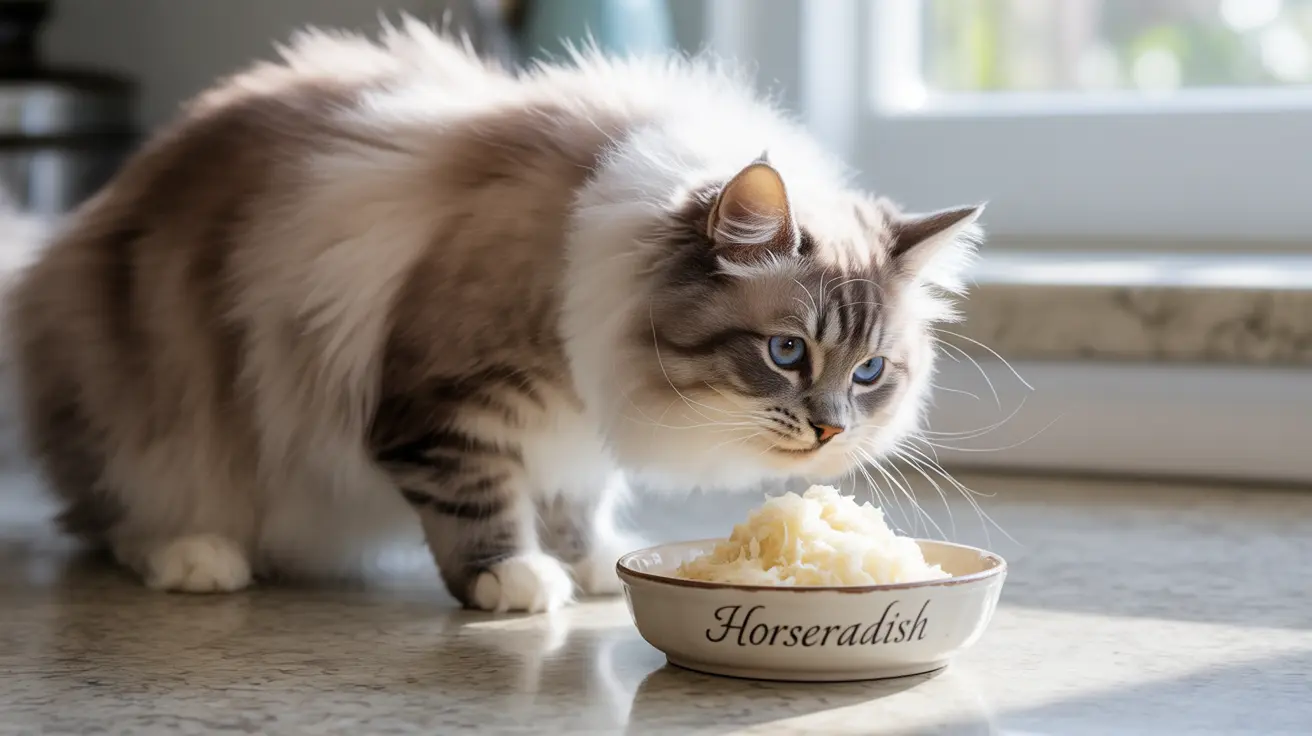The Truth About Cats and Horseradish
Cats are obligate carnivores, meaning their bodies are designed to process and obtain nutrients primarily from meat. Their digestive systems aren't equipped to handle spicy or pungent foods like horseradish. The root contains compounds that can cause significant discomfort and irritation in cats.
The active compound in horseradish, sinigrin, creates a strong, pungent taste that can irritate your cat's sensitive mouth, throat, and digestive system. When broken down, it produces allyl isothiocyanate, which causes that characteristic "heat" sensation.
Potential Health Risks and Symptoms
When cats consume horseradish, they may experience several uncomfortable symptoms:
- Oral irritation and excessive drooling
- Gastrointestinal upset
- Vomiting or diarrhea
- Nasal and eye irritation
- Sneezing and respiratory discomfort
- Possible allergic reactions
In more severe cases, cats might develop difficulty breathing or show signs of significant digestive distress. These symptoms require immediate veterinary attention.
What to Do If Your Cat Eats Horseradish
If your cat manages to sample some horseradish, don't panic. Monitor them closely for the following 24 hours and watch for any concerning symptoms. Provide fresh water and ensure they have access to their regular food.
Contact your veterinarian immediately if you notice:
- Severe or persistent vomiting
- Difficulty breathing
- Signs of allergic reactions like swelling
- Lethargy or unusual behavior
- Refusal to eat or drink
Prevention and Safe Alternatives
The best approach is prevention. Store horseradish and horseradish-containing products securely out of your cat's reach. If you're looking to give your cat treats, stick to commercially produced cat treats or small pieces of plain, cooked meat.
Remember that cats don't need variety in their diet the way humans do. A high-quality cat food provides all the nutrition they need.
Frequently Asked Questions
Can cats safely eat horseradish or does it pose health risks?
No, cats should not eat horseradish. While not officially toxic, it can cause significant digestive upset, oral irritation, and respiratory discomfort. There's no nutritional benefit for cats, and the risks outweigh any potential appeal.
What symptoms should I watch for if my cat accidentally eats horseradish?
Monitor for drooling, vomiting, diarrhea, sneezing, respiratory distress, and signs of oral irritation. Also watch for allergic reactions like swelling or difficulty breathing, which require immediate veterinary care.
Why is horseradish irritating or harmful to cats' digestive systems?
Cats' digestive systems are designed for processing meat, not spicy or pungent vegetables. Horseradish contains compounds like sinigrin that can irritate the mouth, throat, and digestive tract of cats.
What should I do if my cat consumes a small amount of horseradish?
Monitor your cat closely for 24 hours, ensure they have access to fresh water, and watch for concerning symptoms. If they show signs of severe distress or allergic reactions, contact your veterinarian immediately.
Are horseradish condiments or sauces more dangerous to cats than plain horseradish?
Yes, horseradish condiments and sauces often contain additional ingredients like garlic, onion, salt, or other seasonings that can be toxic to cats. These prepared products pose even greater risks than plain horseradish.






